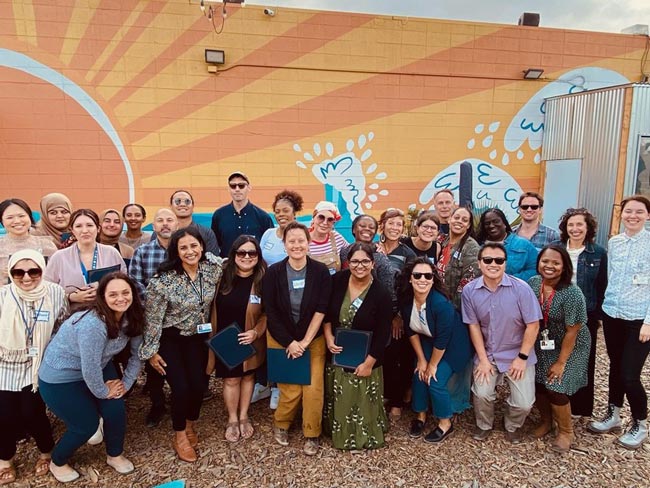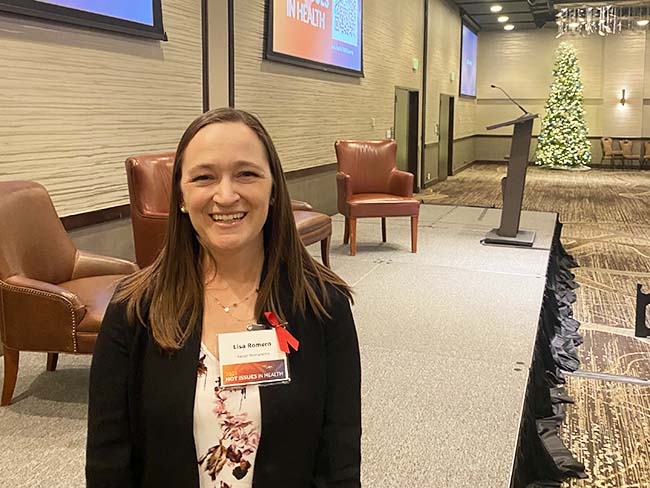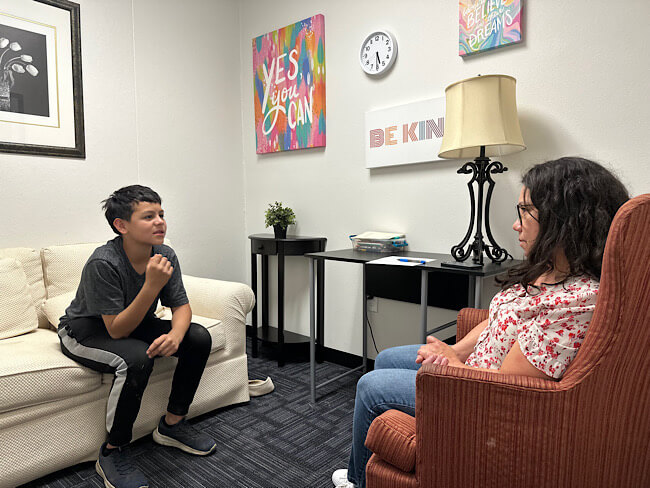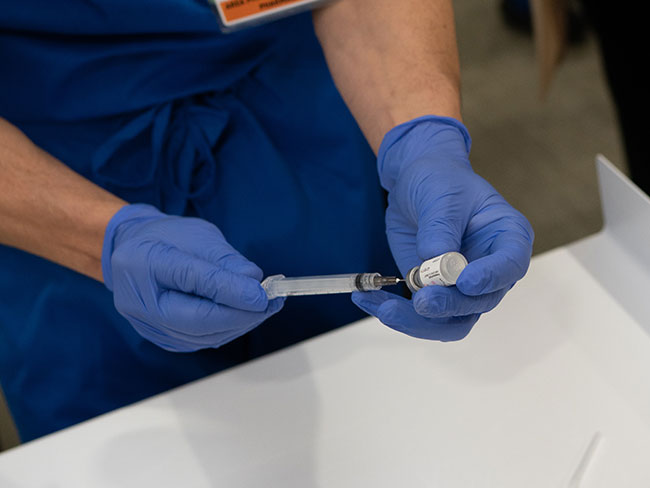Mental health care without borders
When clinicians can practice across state lines, more people can get the care they need. We urge policymakers to support interstate licensure compacts.
Interstate licensure compacts help qualified clinicians start providing care faster and to more patients.
About 60 million U.S. adults — 1 in 5 — face mental health issues each year.
Yet, 160 million Americans live in areas with too few mental health providers. Rural areas struggle the most.
As demand for mental health care continues to grow, the U.S. faces a projected shortage of 350,000 mental health professionals by 2030.
Kaiser Permanente is working to meet demand by offering more virtual care, team-based care, and training programs. Large challenges remain — particularly when it comes to professional licensure.
Different states have their own forms, fees, and requirements to gain license to practice a profession in that state. These differences prevent or make it harder for providers to start working where they’re needed most.
How interstate licensure compacts help
Interstate licensure compacts are agreements between states that allow mental health professionals to practice in multiple states with one license.
These agreements simplify licensing while ensuring patient safety. States in a compact agree to the same licensing rules. State licensing boards manage credentials and securely share information.
Interstate compacts provide clear, practical benefits.
- Providers: Cross-state licensing takes less time — often only days — letting clinicians help patients sooner. Getting a compact license often requires less paperwork and lower fees.
- Patients: People who move out of state, such as students moving to college, can keep seeing their counselors online. Families near state borders have more local options. Rural residents get faster access to care as their care options increase.
- States: Shared databases make background checks easier and cut costs.
There are good examples of successful compacts outside the field of mental health care.
- The Interstate Medical Licensure Compact, which covers doctors across 40 states, the District of Columbia, and Guam, issues most physician licenses within 7 to 10 days instead of weeks or months.
- The Maryland, Virginia, and Washington, D.C., psychiatry compact cut approval times for psychiatrists to obtain a license from about 3 months to 3 weeks.
- The Nurse Licensure Compact, which covers 41 states and 2 U.S. territories improves nurses’ work and helps fill staffing gaps, according to 96% of 66,000 surveyed nurses.
Policy recommendations
To help more people get the care they need, we encourage policymakers to:
- Support broader adoption of licensure compacts, so more mental health professionals can work across state lines with a single license
- Expand broadband access and improve telehealth reimbursement to make remote care more available and affordable for patients
- Simplify training and supervision requirements to enable more people to enter the mental health care workforce
- Invest in workforce development programs, like scholarships, residencies, and loan repayment, to attract providers to underserved areas and encourage them to stay
Our country faces a significant challenge in addressing its mental health needs. Policymakers can help ensure that all people receive the care and support they deserve.

























































